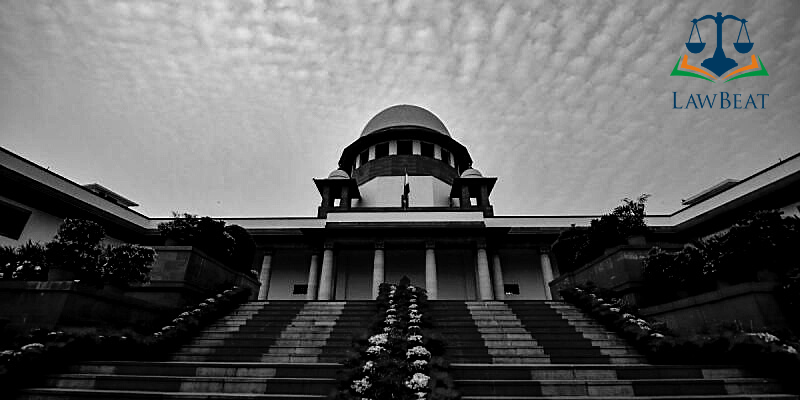Plea Seeking Implementation Of Clinical Establishment Act and Rules: Supreme Court Seeks Centre’s Response

The Supreme Court today issued a notice in a plea seeking the realization of the Right to Health through proper implementation of the Clinical Establishments (Registration and Regulation) Act 2010, the Clinical Establishment (Central Government) Rules, 2012, and the Patients’ Rights Charter.
Division Bench of Chief Justice NV Ramana and Justice Surya Kant while seeking a response from the in a plea which also seeks operationalization of the provisions of Clinical Establishment Act, 2010 (“CEA 2010”), the Rules 2012 and Patients Rights Charter in all States/ UTs uniformly to ensure the affordable and quality healthcare guaranteed under the constitution Centre said, “We’ll issue notice. We hope that the Government responds.”
Submissions By Counsel For Jan Swasthya Abhiyan
Senior Advocate Sanjay Parikh appearing for Jan Swasthya Abhiyan argued that as per the report submitted by the Bhore Committee in 1946, it was suggested that there should be a statutory framework so that adequate provision of medical care of individuals in the curative and preventive fields should exist.
“There should be easy accessibility by all citizens, ensuring the maximum use by the community. One of the important recommendations was that no individual should fail to secure adequate medical care because of his or her inability to pay,” Senior Advocate Parikh further submitted to substantiate his contention.
“The situation today is that more than 70% patient care is provided by the private sector and less than 30% patients use the public sector,” argued Senior Advocate Sanjay Parikh.
It was also his contention that the CEA, 2010 and that Section 11, 12, and 13 of the CEA Act, 2010 read with Rule 9 provides for other conditions of registration and continuation of clinical establishments but its implementation was ultimately in the hands of State and Central Government.
Senior Advocate Sanjay Parikh also submitted that some states such as Arunachal Pradesh, Himachal Pradesh, Mizoram, and Sikkim agreed to adopt the Central Legislation which prescribed for minimum facilities and services to the patients. Some had passed independent legislation with respect to the same and that the provisions relating to the prescription of minimum standards for affordable and quality healthcare as discussed above, do not exist evenly in all the States.
“At present, there are 11 States and 6 UTs where the said Act is applicable. Subsequently, the Rules were also framed, namely Rules 2012, which came into effect on 19.03.2012. There are standard treatment guidelines and the draft has come, however the same has not been notified. While CoVID came, this was in existence. The act clearly mentions the rates that are to be charged from the patients etc," Senior Advocate further submitted.
Senior Counsel for Jan Swasthya Abhiyan submitted that the notification with regard to minimum standards of medical diagnostic laboratories has been notified on 18.05.2018. With reference to the other requirements, a draft was prepared and was put up for public comments on 17.07.2019, requiring comments/ suggestions to be submitted within 45 days, but these minimum standards have still not been notified.
Replying to Senior Advocate’s contention, Chief Justice NV Ramana said, “Do you think small clinics & laboratories will be able to comply with all these guidelines? Ultimately they'll pass the burden on the patients only.”
Contents Of The Plea
Filed by Jan Swasthya and through Advocate on Record Srishti Agnihotri the plea states that in the States and UTs where the CEA, 2010 applies, due to lack of implementation and operationalizing of the provisions, the Act and the Rules only exist on paper without actual implementation, especially on matters of quality and affordability on the ground.
“The National Health Policy 2002 envisaged the enactment of suitable legislation for regulating minimum infrastructure and quality standards in clinical establishments/medical institutions to be implemented by 2003. Similarly, the National Health Policy 2017 has recommended urgent and concrete steps for regulation of clinical establishments, while stating the need for protection of patient rights in the context of the same. However, regulation of standards in clinical establishments which had been adopted as a national policy goal by Government of India nearly two decades ago is yet to be effectively implemented across the country,” excerpt from the plea.
The plea also takes note of the effect on people in general as a result of an increase in private medical care facilities such as profit maximization by medical professionals and hospitals, arbitrary and unaffordable rates, lack of qualified medical professionals, and no adherence to expected standard practices, among others.
Jan Swasthya Abhiyan in its plea has also sought a grievance redressal mechanism should exist at the district, state, and national level to look into grievances of the patients at different levels, including denial of patients’ rights by the hospitals/ clinics, and failure to provide minimum care and facilities as provided under the Clinical Establishments Act and Rules.
Case Title: Jan Swasthya Abhiyan v. Union of India
